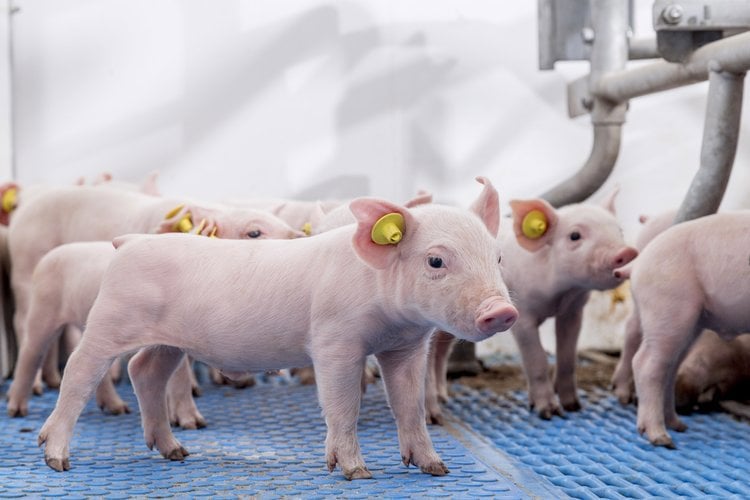
Swine Antimicrobial Reduction Programme
Integrated and customised feed farm health approach.
Antimicrobial Resistance (AMR) is the number one global public health issue of our time, affecting both human and animal health. It occurs when a microorganism becomes resistant to antibiotics that were originally effective in treating infections it caused. The number of human deaths as a result of antimicrobial resistance is rising. In addition to the human threat, animal producers around the world experience the consequences of less effective treatment possibilities and the resultant increased mortality rate and low feed efficiency. Trouw Nutrition’s aim is to find new methods that substantially reduce reliance on antibiotics and improve the health, efficiency and productivity of animals.


Sudden changes in feed composition and factors such as heat stress may pose a threat to the GIT, due to destabilisation of the microbiota and alteration of barrier functions and immune responses. In antibiotic-free production environments, the primary need is to prevent dysbiosis, or imbalance of microorganisms, in the GIT and optimise the pig’s mucosal defence functions. When a disease does not respond to the antibiotic treatment used as the last resort, the economic loss is huge for current and subsequent flocks, a result of reduced performance, lower health status of the animals and increased costs for medication.
Ab Januar 2022 ist der Einsatz von Zink in pharmakologischer Dosierung in der EU nicht mehr zulässig. Pharmazeutische Zinkdosen werden derzeit bei Absetzferkeln verwendet, um Durchfall nach dem Absetzen zu reduzieren und die Leistung zu verbessern. Umwelt- und Gesundheitsbedenken sind Schlüsselfaktoren für diese Gesetzesänderungen. Welche Herausforderungen stellen diese Beschränkungen für Schweinezüchter dar, die sich bemühen, Gesundheit und Produktivität ihrer Bestände zu fördern? Trouw Nutrition hilft Tierproduzenten mit unserem Young Animal Feed-Konzept, die Produktivität und Rentabilität der landwirtschaftlichen Betriebe ohne den Einsatz von Antibiotika zu erhalten oder sogar zu steigern. Unser Fokus liegt auf der Überwindung der Immunitätslücke rund um das Absetzen und der Aufnahme lebenswichtiger Nährstoffe für Gesundheit und Entwicklung. Die Ergebnisse sind eine geringerer Einsatz von Antibiotika, eine verbesserte Effizienz und Produktivität sowie eine nachhaltige Tiergesundheit.
